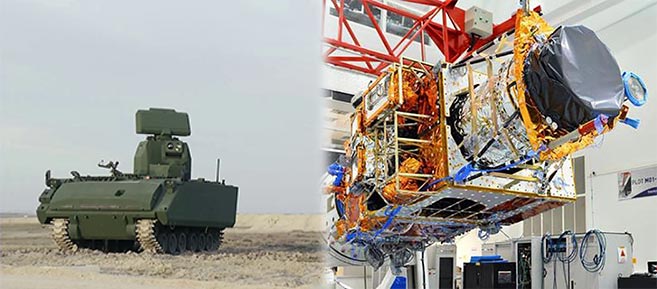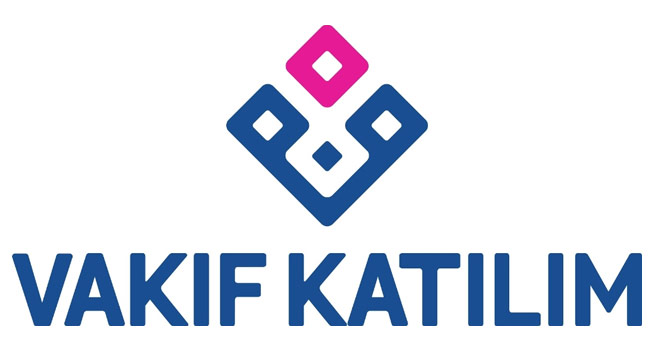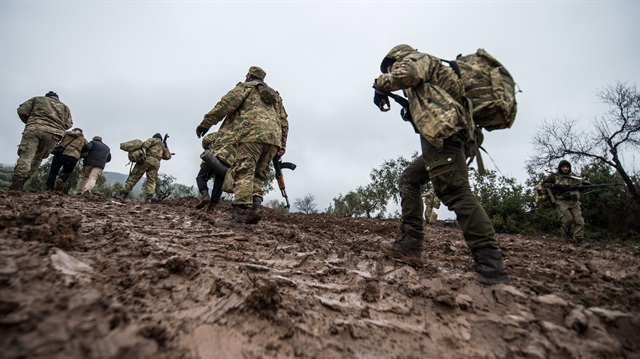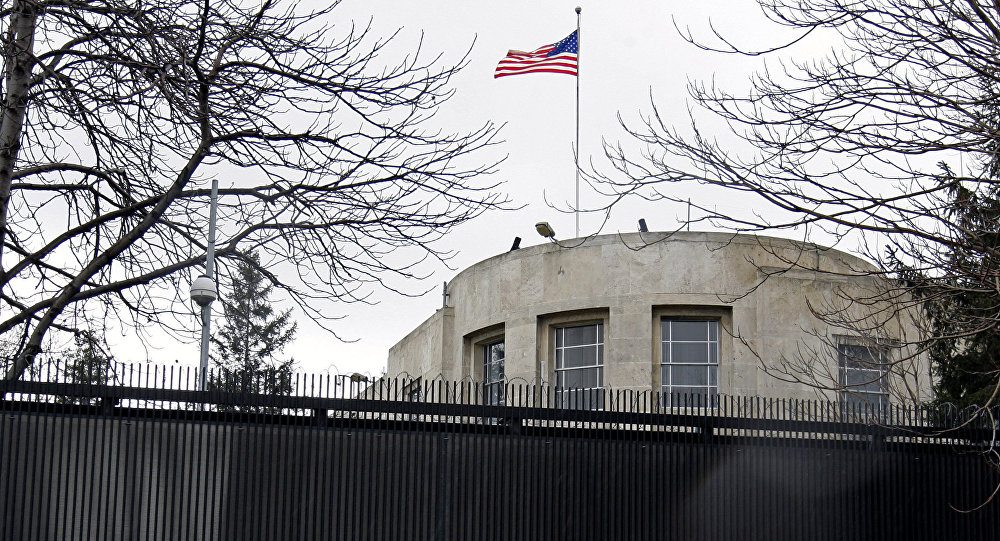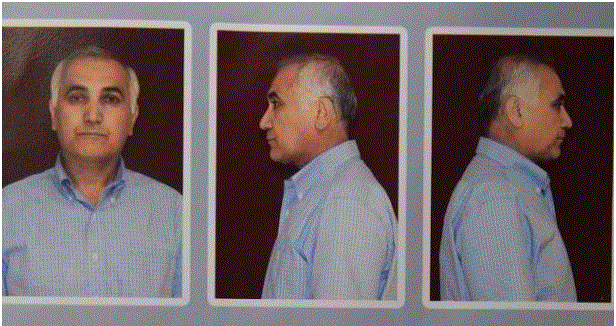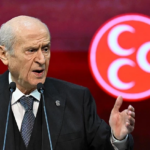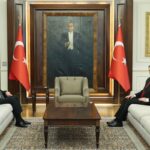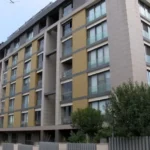The development of productive power in the non-communist world, with complementary efforts to produce strong military forces and to increase all that makes for political cohesion, is the course most likely to bring about a workable international system and a stable power relationship. (1)
Even though the U.S., for the time being, appears to be sitting on the sidelines of the regional rivalries in Turkey’s neighborhood, no one should expect Turkey to throw itself into Moscow’s arms. The current regional situation has resulted from U.S. mistakes and NATO passivity. For example, can we imagine, at the current juncture, that Turkey would forego its support of Azerbaijan’s government if Russia, which supports Armenia’s government and has soldiers in that country, becomes unhappy with Baku? Russia has been cooperating with Tehran in Syria — can we imagine that Turkey will reduce its opposition to Tehran’s increased interference in the region’s states? Who would Ankara support if a conflict broke out between Azerbaijan and Iran? (2) Through its support for Northern Iraq’s Kurdish Regional Government, the Turkish leadership has made its expectations clear: Those who want to be taken seriously need to reject political violence, become rational political actors, and engage in dialogue and negotiations as equals. Are Tehran, Damascus, Qandil (i.e. the PKK/PYD), or Hezbollah ready to fulfill those criteria? The answers to all of the above questions seem clear. If the new U.S. administration can get U.S. foreign policy in Turkey’s neighborhood back on track (admittedly an unlikely scenario), or push NATO into backing Turkey more openly and dependably (3), Turkey would be the first to welcome it. But it will take some time and real results to undo the damage caused over the past four years.
Until then, Turkey is testing and developing its military capacities in Northern Syria. The Turkish military has been forced to become adept at the sort of intense urban warfare used by the PKK and DAESH. Slowly, carefully, and with great regard for civilian life, Turkey is rolling back DAESH and achieving far greater successes than all the coalition efforts in Mosul.
But Turkey’s emerging military capabilities are not limited to the battlefield. Step-by-step, Turkey is developing the ability to domestically produce advanced weaponry, from tanks and ships to air defense systems and armed drones. Just look at the two banner pictures above. And Turkey has just placed in orbit a security-tasked satellite, produced partially with domestic technology (4). Turkey is also taking steps to develop a cyber warfare capacity as attacks against its infrastructure, banks and companies have become more common (5). For the past decade Turkey had already been developing its regional trade ties, and the Turkish economy continues to grow (6) — despite the extreme tests it has weathered over the past four years, and despite the poor global economic situation. Turkey’s potential as a stabilizing force in this region, which was eclipsed after tensions with Israel in 2009-2010 and the outbreak of the conflict in Syria, is also experiencing a resurgence. As an industrializing Muslim democracy, Turkey already serves as a rallying point for the region’s Sunni states against Iran’s theocratic regime.
I should mention that Turkey’s status as a leading Sunni state is only de facto because the Turkish political leadership does not openly claim or advertise such a position. On the contrary; Turkish politicians, and especially President Erdoğan, go out of their way to avoid or disown such an image. Whenever the issue of Turkish identity comes up, Turkish politicians invariably set out a long list of ethnic and religious minorities in Turkish society, declaring all to be equal and valued parts of Turkish society. And this is not only because a sizeable portion of Turkey’s society does not identify as Sunni. In past centuries the Sunni-Shia divide has caused many disasters, and all rational people here want to avoid that dead end. But there is no question that Tehran has decided that inflaming regional Sunni-Shia rivalry is in their interest, and this threatens the social stability of several regional states, including Turkey. In response Sunni states, most obviously Qatar and Saudi Arabia, have taken steps to develop relations with Turkey. Turkey’s first overseas military base was opened last summer in Qatar, for example (7).
For the first time in a century, Turkey appears to be developing multi-dimensional political, economic, and military capabilities that enhance its regional presence, which means that it has an increased ability to act on its own. In other words, Turkey’s need for an offshore balancer may be in decline. This is a development that the U.S. needs to understand soon, and especially because the U.S.’s own actions are a contributing factor. The long-term consequences of these developments will doubtless be highly interesting to observe in the coming years.
It is rather a question of the degree to which the United States can create among the peoples of the world generally the impression of a country which knows what it wants, which is coping successfully with the problems of its internal life and with the responsibilities of a World Power, and which has a spiritual vitality capable of holding its own among the major ideological currents of the time. (8)
If I were a European and had to live through two or three years of American negotiations about withdrawing from the Continent, I think that very early in the game I would discount America’s remaining and would prepare to face a new situation. (9)
NOTES
(1) Dean Acheson, Power and Diplomacy (1963), p. 22.
(2) In a reflection of the diplomatic jockeying currently going on in the region around Turkey, Israeli PM Benjamin Netanyahu recently visited Azerbaijan (http://www.haaretz.com/israel-news/.premium-1.758897). That visit elicited threats from Tehran: http://www.ahaber.com.tr/dunya/2016/12/30/azerbaycandan-iran-haritadan-silinir-uyarisi. Turkey and Israel have repaired their relations, while Turkey is a steadfast ally of Azerbaijan, and is greatly concerned about creeping Iranian influence across the region.
(3) Unfortunately also unlikely, as President-elect Trump’s attitude towards NATO appears to be exactly what Putin was hoping for: http://www.theatlantic.com/international/archive/2016/11/trump-nato-europe-germany/508229/; http://www.bbc.com/news/world-europe-38258052.
(4) http://www.trtworld.com/turkey/turkey-launches-gokturk-1-military-surveillance-satellite-245835.
(5) http://www.turkiyegazetesi.com.tr/gundem/423748.aspx; http://www.hurriyet.com.tr/buyuk-turk-sirketlerine-siber-saldiri-40318144; http://www.milliyet.com.tr/elektrik-saldirilarina-siber-ekonomi-2372186/; http://www.milliyet.com.tr/elektrik-hatlarina-siber-saldiri-gundem-2371112/.
(6) The 15 July failed Gülenist coup attempt did cause the Turkish economy to contract in 2016’s third quarter, but growth for the entire year is still expected to come in on the positive side. After the kind of year that Turkey experienced in 2016, positive economic growth would be a truly remarkable achievement.
(7) http://www.reuters.com/article/us-qatar-turkey-military-idUSKCN0XP2IT.
(8) George F. Kennan as “X,” “The Sources of Soviet Conduct,” Foreign Affairs, July 1947, pp. 581. https://en.wikisource.org/wiki/The_Sources_of_Soviet_Conduct.
(9) Dean Acheson, “The Illusion of Disengagement,” Foreign Affairs, April 1958, p. 378. Acheson criticized Kennan in that article.
Yazıyı beğendiysen, patronumuz olur musun?
Evet, çok ciddi bir teklif bu. Patronumuz yok. Sahibimiz kar amacı gütmeyen bir dernek. Bizi okuyorsan, memnunsan ve devam etmesini istiyorsan, artık boş olan patron koltuğuna geçmen lazım.
Serbestiyet; Türkiye'nin gri alanı. Siyah ve beyazlar içinde bu gri alanı korumalıyız. Herkese bir gün gri alanlar lazım olur.




